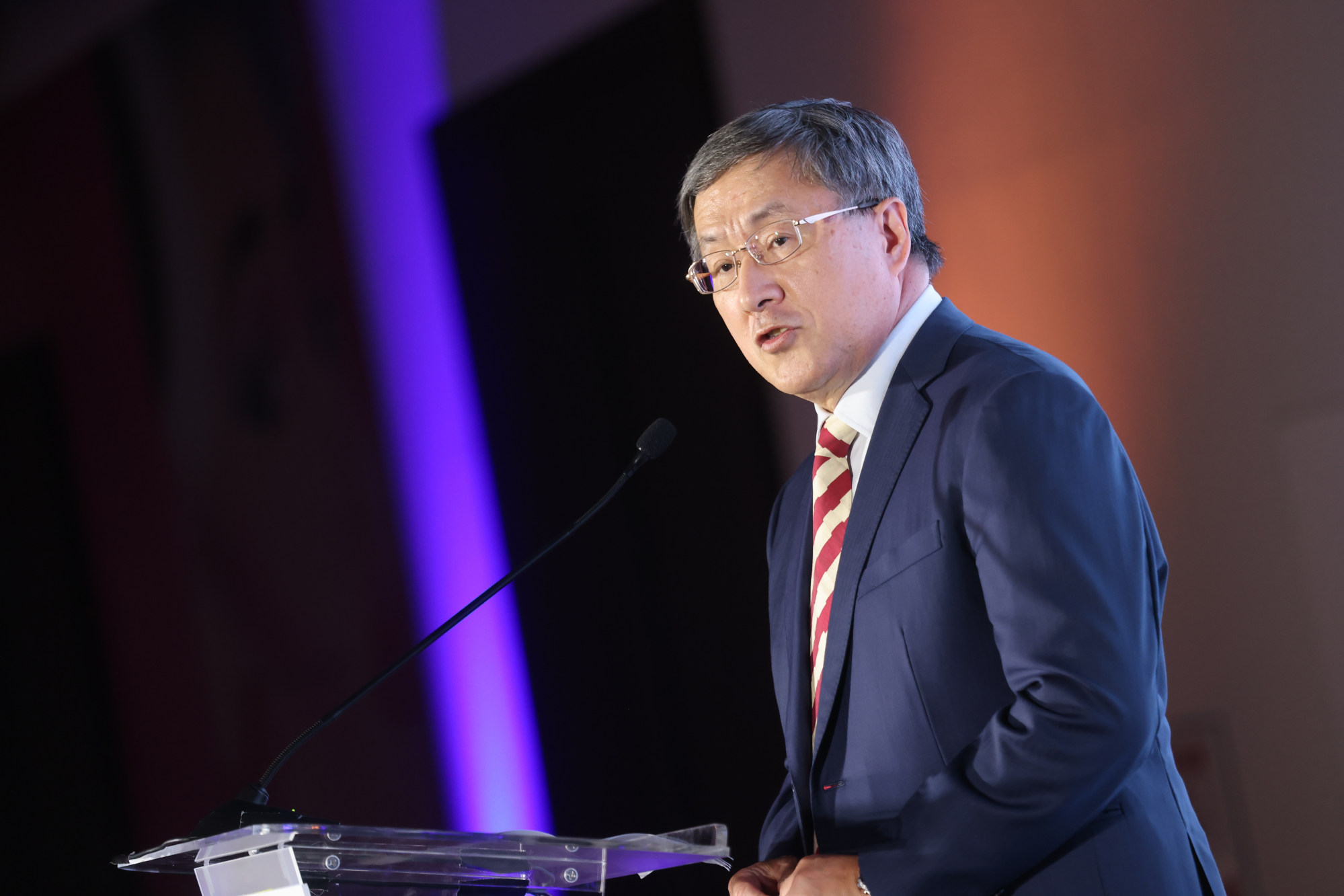
EU’s point man in Hong Kong says political situation and global tensions hamper city’s development
- Thomas Gnocchi, head of the EU office to city and Macau, says political climate has affected companies and individuals thinking of coming to Hong Kong
- Getting ‘one country, two systems’ message across in Europe still a ‘challenge’, according to him
“A lot of what is heard in Europe is on what’s happening politically here, and that sometimes does not help – not so much in companies that are already established here – but companies or individuals that are looking for potential opportunities in Hong Kong. This is something that is maybe of concern,” Gnocchi said.
He was speaking to the Post at an event organised by the European Chamber of Commerce.

The gathering, held at the M+ museum, was attended by about 240 people, including heads of the city’s foreign business chambers, business executives and government officials.
It was the culmination of a week-long programme of panel discussions and seminars designed to forge stronger economic links among Europe, Hong Kong and mainland China.
Chan is leading the largest delegation to Europe since the Covid-19 pandemic hit in 2020, with stops in France, Britain and Germany, in a bid to highlight Hong Kong as a top city for business opportunities, despite the political tensions.
He has touted Hong Kong’s advantages, including its “one country, two systems” principle, but Gnocchi said getting that message across in Europe was still a “challenge”.
Chan stopped off in Berlin on Monday and will head to Germany’s financial powerhouse Frankfurt on Tuesday.
Johannes Hack, president of the German Chamber of Commerce in Hong Kong, said he was happy Chan had included Germany on the trip.
“The more people meeting, the better. We have had so much silence. We have a lot of people not willing to engage. It’s difficult. Geopolitics, concerns. So there are a lot of people honestly unwilling or uncertain about engaging,” Hack said.
He added international politics had affected how Hong Kong’s one country, two systems framework was viewed in Europe.
“The perception I get from my visits to Germany is very clearly that they are focusing more on only the one country, just another Chinese city,” he said, noting it was very important to have more visits and talks involving Hong Kong, Europe and Germany.
Gnocchi added another concern was replenishing the ranks of Europeans who had left the city after an exodus of expatriates and an emigration wave sparked by the 2019 anti-government unrest, the Beijing-imposed 2020 national security law and strict coronavirus restrictions.
“Hong Kong is an international city, so yes, mainland talent is needed, but you need talent from all over the world and you need to attract that talent,” Gnocchi said.
Pablo Riquelme Turrent of Spanish bank BBVA backed Gnocchi, saying European banks such as his organisation needed foreign talent, as well as mainland Chinese high-fliers.
“It’s really hard to find European young people to come to Hong Kong,” Turrent said during a panel discussion at the event. “I think it can return, as relationships improve, geopolitically speaking.”
He said the European business community, with 1,600 companies, was the biggest in the city after that of the mainland.
The government in July condemned what it said were “misleading comments” from the EU about changes in the way municipal-level district councillors were chosen.

